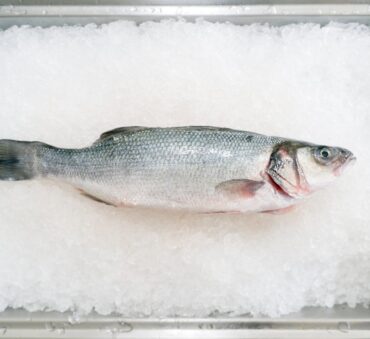Food waste in the United States has become a huge problem, with 30-40% of the entire food supply wasted. This has huge environmental repercussions, including excessive landfill use, the production of methane emissions, and the loss of valuable resources.
The financial consequences of food waste are also worth noting, costing an estimated $218 billion annually, or 1.3% of GDP in the United States.
With businesses, households, and communities alike enduring these consequences, there’s now a unique opportunity to reduce the economic burden of waste while mitigating some of its negative effects. But how?
By leveraging tax deductions. For everyone involved, acting on food waste tax deductions is not only a financial decision but an ethical and environmental one as well. Let’s explore this topic in more detail, outlining food waste tax deductions in the U.S., how to claim food waste deductions, and navigating the complex landscape.
Key Takeaways
- Thanks to Internal Revenue Code 170, enhanced tax deductions are provided to businesses to encourage donations of fit and wholesome food to qualified nonprofit organizations serving the poor and needy.
- There are requirements that businesses must meet to qualify for tax deductions, such as donating food to eligible organizations, ensuring that it’s used for charitable purposes, and complying with food quality standards.
- The amount of charitable deductions that a business can claim depends on the type of business that makes the donation; C-corporations generally cannot deduct more than 10% of their taxable income for the year, while businesses that are not C-corporations generally cannot deduct more than 30% of the business’ total taxable income each year.
- Tax incentives open a new opportunity to raise awareness about the current food waste crisis, encouraging businesses and individuals to adopt more sustainable practices and mitigate the environmental, economic, and social impacts of food waste.
Is food waste tax deductible?
In the United States, food waste can qualify for tax deductions when it is donated to qualified nonprofit organizations. The purpose of this incentive is to encourage businesses to contribute their excess, yet still consumable, food to those in need. This diverts food from landfills and helps address the current food insecurity crisis, which affects 44 million people in the United States, making it a valuable waste management approach.
However, it’s important to note that there are conditions under which food waste qualifies for tax deductions according to the IRS, which we’ll discuss below.

Understanding Food Waste Tax Deduction in the U.S.
So, what do I need to know about this process? And what is considered food waste?
According to the USDA’s Economic Research Service (ERS), food loss is the edible amount of food, postharvest, that is available for human consumption but is not consumed for any reason.
Thanks to Internal Revenue Code 170, enhanced tax deductions are provided to businesses to encourage donations of fit and wholesome food to qualified nonprofit organizations serving the poor and needy. In 2015, the Protecting Americans from Tax Hikes (PATH) Act was passed, making all businesses eligible for enhanced tax deductions upon meeting certain criteria. This includes C-corporations, S-corporations, limited liability corporations (LLCs), partnerships, and sole proprietorships.
However, there’s another important act that has helped encourage this movement, which is called the Bill Emerson Good Samaritan Food Donation Act. This act provides liability protection to donors who donate in good faith, including donations from farmers, grocers, wholesalers, hotels, manufacturers, restaurants, caterers, schools, and others.
This act provides valuable protection to encourage establishments that generate large-scale waste to participate. This opens the opportunity to reduce food waste in restaurants and food waste in supermarkets, both of which are large contributors to the food waste crisis.
For restaurants, deductible food waste typically includes unserved or unsold meals or food items that have reached their expiration date but are still safe for consumption. Supermarkets can deduct the cost of perishable goods that are nearing their sell-by date or have minor imperfections but are still fit for consumption.
Since every establishment is different, businesses must create a tailored plan that works for them. That said, businesses that want to know how to write off food waste must understand the specified requirements necessary to benefit from food waste deductions. Keep reading to learn the criteria for tax-deductible food waste and how to claim it.
Criteria for Tax-Deductible Food Waste
There are 3 main requirements that businesses must meet to receive a food waste tax deduction, including:
- Food must be donated to eligible organizations: Donors must donate food to qualified nonprofit organizations, which consist of organizations that use the food solely for the care of the ill, needy, or infants.
- The recipient must only use the food for charitable purposes: The organization that receives the donation must use the food in a manner consistent with the purpose constituting that organization’s exempt status under IRC 501(c)(3). In other words, it must be used exclusively for charitable purposes.
- The nonprofit can’t sell the food for money, other property, or services: The only exception to this rule is if the recipient organization charges another organization a nominal amount for administrative, warehousing, or other similar costs.
There are also certain food quality standards that businesses must meet. All donated food must satisfy the requirements of the Federal Food, Drug, and Cosmetic Act (FDCA) at the time of donation and for the preceding 180 days.
By following these requirements, businesses not only receive tax incentives but can also enhance their brand image and reputation. Overall, donating food sets businesses apart for their sustainability efforts, having clear differences from businesses that discard or dispose of food waste in landfills.
While donating food offers environmental, economic, and social benefits, the disposal of food waste has the opposite effect. Even more, companies that choose to dispose of food waste do not qualify for the food waste tax deduction since they are not contributing to charitable causes.

Claiming Food Waste Deductions
Claiming food waste deductions is a top priority for many companies, but many are unsure of how to write off food waste. Keep reading to learn the 5 key steps in this process.
Step 1: Understand Eligibility
The first step in this process is to understand the specific requirements that qualify businesses for a food waste tax deduction. As discussed above, this involves donating food to eligible organizations, ensuring that it’s used for charitable reasons, and complying with food quality standards.
Step 2: Document the Donation
Keeping detailed records helps businesses meet IRS requirements and gain tax deductions. Records should show the date of the donation, the fair market value, and the purpose of the donation. In addition, it’s required that the donating business receive a written statement from the recipient organization describing the contributed property and indicating that the property will be used in compliance with the requirements.
Step 3: Calculate the Deduction
There are two ways that businesses can calculate their tax deductions. As explained in this document, eligible businesses can deduct lesser of (a) twice the basis value of the donated food or (b) the basis value of the donated food plus one-half of the food’s expected profit margin.
- (a) Basis value X 2
- (b) Basis value + (expected profit margin/2)
As of 2016, businesses that do not account for inventories and are not required to capitalize indirect costs may choose to calculate the basis value at 25% of the fair market value of their products. Businesses can also calculate the fair market value of certain food items that cannot or will not be sold by using the same price for the same or similar food items. This includes products not sold due to cosmetic imperfections or a lack of market, or products that were made just for donation.
Step 4: Maintain Detailed Records
Make sure to maintain accurate records of your food waste and donation efforts. This includes records of your inventory, the required written statement from the recipient organization, and documents outlining the fair market value of your products.
Step 5: Report the Deduction
When individuals, partnerships, or corporations have a deduction for all noncash gifts exceeding $500, they must file Form 8283. You can download this form here and get instructions for Form 8283 here.
Expert Tips
- Consistent Record-Keeping: Businesses that want to take advantage of the food waste tax deduction must prioritize accurate and detailed record-keeping to optimize the potential deductions available. Businesses can consider using inventory management software or apps to streamline record-keeping processes.
- Consult Professionals: Tax professionals can help you optimize deductions, comply with laws, and stay informed on tax regulation updates.
Common Pitfalls to Avoid
- Incomplete Documentation: Incomplete documentation, which may include missing receipts or a lack of detail to support deduction claims, can prevent businesses from gaining tax deductions.
- Ignoring IRS Guidelines: Following IRS requirements carefully is crucial throughout this process. Companies that do not follow the requirements may not be eligible for tax deductions.
- Overvaluation of Donated Food: Businesses should avoid overstating the fair market value of donated food to prevent potential issues with the IRS.

Limits in Food Waste Deductions
The amount of charitable deductions that a business can claim depends on the type of business that makes the donation. C-corporations generally cannot deduct more than 10% of their taxable income for the year. Businesses that are not C-corporations generally cannot deduct more than 30% of the business’ total taxable income each year; this includes S-corporations, sole proprietorships, and certain LLCs.
And as mentioned, there are strict requirements that businesses must comply with in order to receive tax deductions. Businesses that do not meet these standards, which include compliance with IRS guidelines and documentation requirements, may not be eligible for tax deductions. In addition, not all types of waste qualify for deductions. For instance, spoiled or non-edible food may not meet quality standards.
The Broader Impact of Tax Deductions
Tax deduction policies for food waste are a step in the right direction towards making large-scale changes, aligning with broader sustainability goals that create a more resource-efficient society.
There are many environmental benefits to improving food donation efforts, such as reducing food waste’s effect on the environment. By reducing food waste in landfills, we’re also working to reduce methane emissions, a powerful greenhouse gas that contributes to global warming. Effective waste management strategies also have the potential to conserve natural resources and preserve biodiversity, both of which are important considerations in today’s world.
There are also various economic benefits for participating businesses. Aside from tax deductions, businesses can lower disposal costs associated with waste management, such as fees for landfill use, resulting in enhanced profitability.
In addition, tax incentives open a new opportunity to raise awareness about the current food waste crisis, encouraging businesses and individuals to adopt more sustainable practices and mitigate the environmental, economic, and social impacts of food waste.
Navigating the Complex Landscape
There are multiple challenges that businesses may encounter as they try to navigate tax deductions. To start, understanding the complexities of tax law may seem overwhelming. Since not everyone is an expert in this area of law, it’s recommended to hire a professional that can guide you through this process. This ensures that your business follows all the requirements and stays up to date with changing policies.
Some companies may also struggle with identifying how to kickstart their donation efforts. For instance, maybe a company wants to improve their waste management efforts but doesn’t have a clear idea of where the waste is generated or what to do about it. To address this issue, businesses should implement an effective waste tracking system. Tracking food waste helps businesses identify where food waste is generated in order to create a more successful solution.
In general, confusion over policies is also a challenge, with policy improvements having the potential to facilitate greater participation in food waste reduction efforts. This may include additional incentives, simplified tax reporting, and an increase in government awareness campaigns.
Overall, evolving tax policies can influence future business practices regarding food waste, encouraging them to emphasize sustainability and improve collaboration with non-profit organizations.

State-Level Legislation on Food Waste Tax Deductions
It’s important to note that food waste laws vary by state, with statewide tax incentives meant to complement federal guidelines.
California, for instance, is known for its progressive food waste laws. Aside from requiring all its inhabitants to separate their organic waste, California also made it mandatory for certain businesses to donate edible food to food recovery organizations. In addition, California growers donating California-grown fresh fruits or fresh vegetables to a California food bank are eligible for a 10% tax credit.
In New York, eligible farmers and businesses that make qualified donations are entitled to refundable credit, amounting to 25% of the fair market value of their donations to any eligible food pantry operating in New York, without exceeding $5,000 per tax year.
Since food waste by state varies, each state must create its own waste management approach, with some having more developed systems than others. Anyone interested in taking advantage of statewide food waste tax deductions should check if their state offers any additional incentives.
The Bottom Line
Food waste tax deductions are a valuable tool to encourage businesses to address the pressing issue of food waste and food insecurity in the United States. By taking proactive steps towards effective food waste management, businesses can reduce the environmental and social implications of waste, all while gaining the financial benefits of tax deductions.
If you’re ready to start your journey to more sustainable business operations, contact us today. At Shapiro, we have comprehensive commerical food waste recycling services to help you reduce large-scale waste. Give us a call to learn how we can create a tailored solution for your specific business needs.
Baily Ramsey, an accomplished marketing specialist, brings a unique blend of anthropological insight and marketing finesse to the digital landscape. Specializing in educational content creation, she creates content for various industries, with a particular interest in environmental initiatives.



